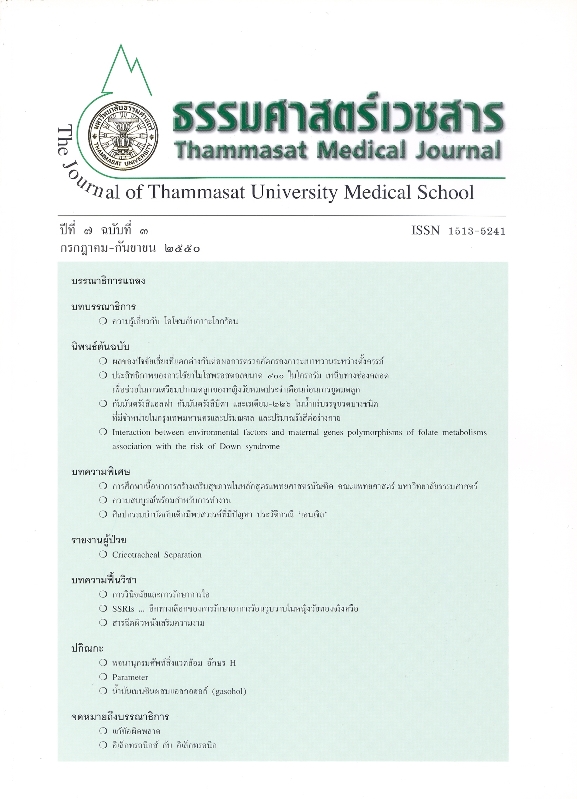Are SSRIs ... an alternative therapy for menopausal hot flashes? Nuchanart Suealek,
Keywords:
SSRIs, menopauseAbstract
Hot flashes or hot flushes that occur in menopausal women can be impact on daily quality of life, particularly when they disrupt sleep, leading to fatigue and irritability during the day. Nowadays, estrogen is the most effective treatment for hot flashes, however, it is not generally recommended for women associated with increased risks of breast cancer, cardiovascular disease, and stroke. Therefore, nonhormonal therapy, including SSRIs (selective serotonin reuptake inhibitors), is proper for menopausal women who cannot take hormonal therapy. Based on a hypothesis of menopausal hot flashes, the decline in estrogen levels causes the reduction of serotonin (5-HT) levels in hypothalamus which results in the increased occurrence of hot flashes. SSRIs block reuptake of 5-HT from the synapse into the presynaptic nerve terminal, thereby increasing synaptic serotonin concentrations. SSRIs are an effective nonhormonal therapy for reducing the frequency and severity of hot flashes. The adverse effects of SSRIs include nausea, vomiting, headache, anxiety, insomnia, and sexual dysfunction. The use of the lowest effective doses can reduce the frequency of their adverse effects. Thus, SSRIs may be an alternative nonhormonal therapy for menopausal hot flashes, especially when hormonal therapy is contraindicated.
Key words : SSRIs, menopause



